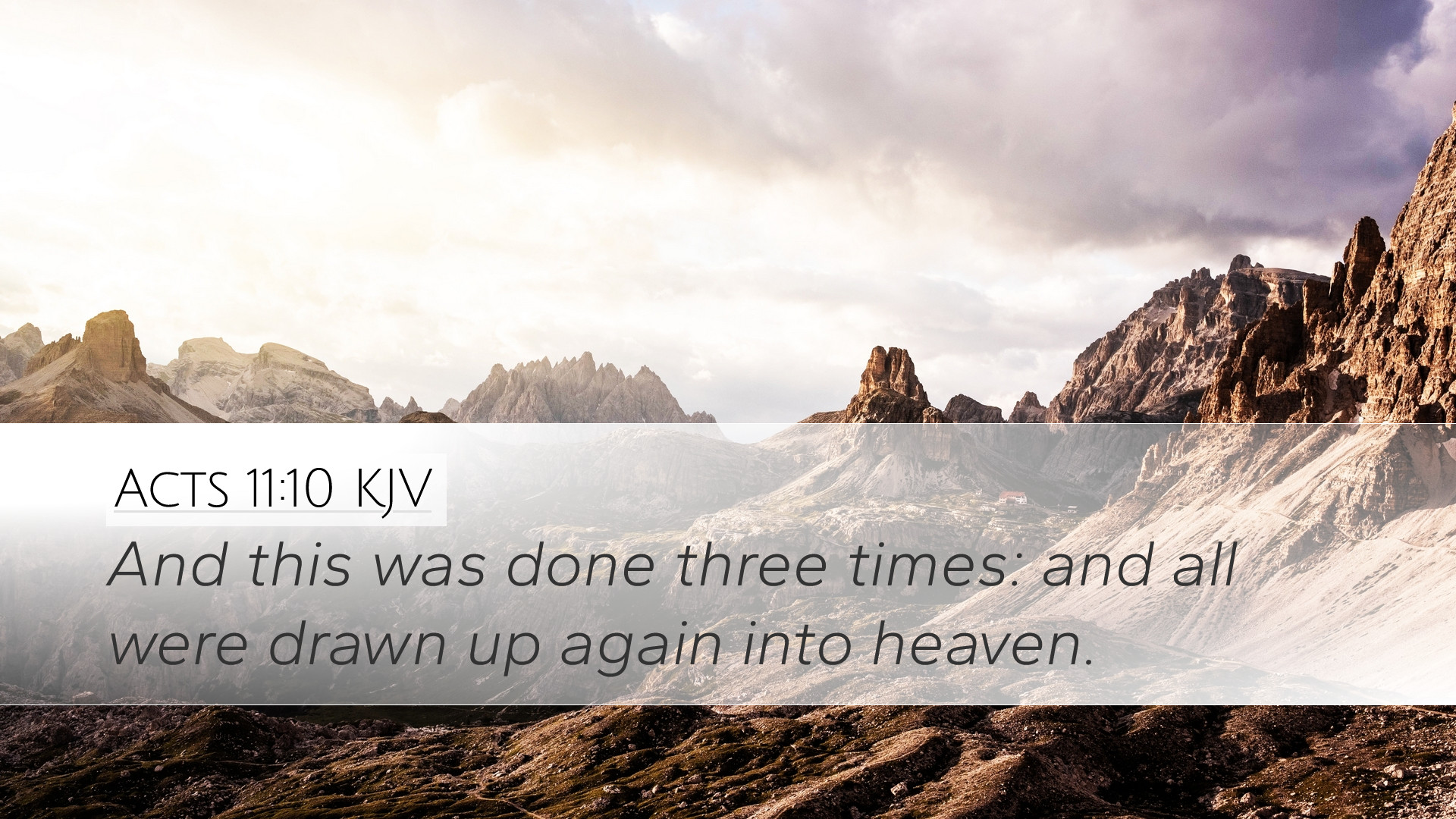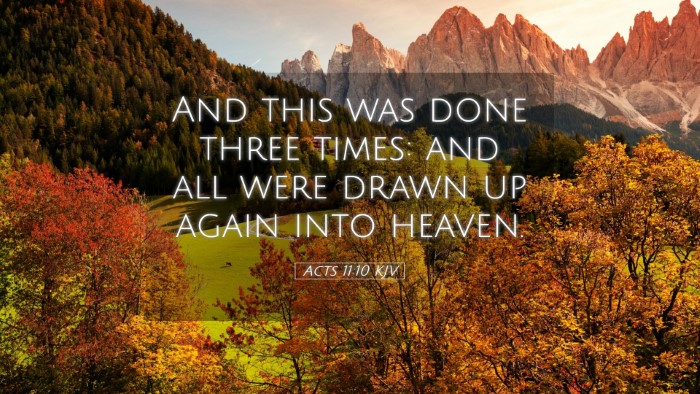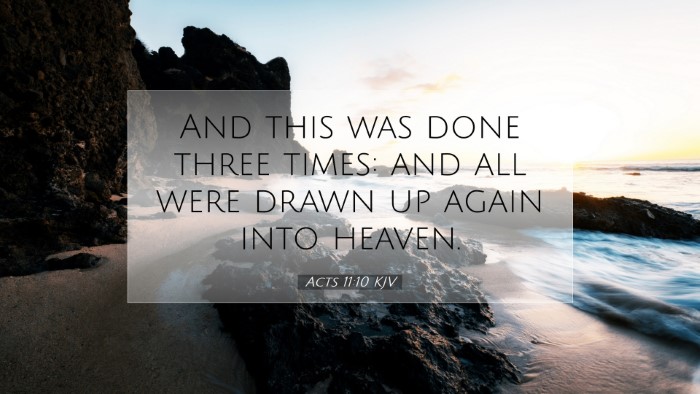Commentary on Acts 11:10
Acts 11:10 reads: "This was done three times: and all were drawn up again into heaven."
Introduction
This particular verse occurs within the larger context of Peter's vision on the rooftop in Joppa, where he encounters a profound transformation in understanding God's acceptance of all people. The events outlined bring to light various theological implications surrounding the nature of God's grace, the inclusion of Gentiles in the salvation plan, and the necessity of a paradigm shift for the early church.
Contextual Analysis
The vision itself is a crucial turning point in the book of Acts, moving away from a solely Jewish perspective of faith to an increasingly inclusive view. The use of “three times” in this verse signifies not only the importance of Peter's experience but also reflects biblical precedents of divine communication (referencing instances like Peter's denial thrice). This repetition underscores God's insistence on altering pre-existing notions regarding clean and unclean.
Theological Implications
1. Divine Repetition:
- The act of threefold repetition highlights God's patient teaching. As Adam Clarke notes, "The repetition of any command is a clear indication of its necessity." For Peter, it signifies a pivotal moment of spiritual growth and the breaking down of barriers that hinder fellowship among believers.
- Matthew Henry points out the significance of such triadic communication, signifying that God often speaks emphatically in trinities to get the attention of His people. This portrays God's earnest desire for us to embrace His broadened scope of grace.
2. Inclusion of Gentiles:
- The vision acts as a divine confirmation that the gospel is not confined to Jewish boundaries, an idea elaborated upon by Albert Barnes. It challenges the early Jewish Christians to recognize that "God is no respecter of persons," indicating the universal reach of the Gospel.
- This inclusion aligns with Old Testament foreshadowing, as indicated in the prophecies concerning the nations being drawn to the Lord (Isaiah 49:6). Thus, this moment is not merely an aberration but rather the fulfillment of divine promise.
Historical Context
The shift from a purely Jewish church to a more inclusive congregation represented a monumental change in the dynamics of early Christianity. It reflects the tensions present within the early church regarding the law and grace—a theme that is consistently woven throughout the New Testament. Peter's vision and consequent actions depict the transitional period within the early church, often grappling with the implications of the resurrection and the gift of the Holy Spirit bestowed upon all believers.
Personal and Ecclesiastical Application
For contemporary believers, Acts 11:10 serves as a poignant reminder of the necessity for inclusivity within the church. It encourages a reevaluation of our biases and prejudices toward those whom we may deem 'unclean' or 'unworthy' of God's grace. We are called not only to proclaim the Gospel but to embody it, embracing those who are different from us.
1. Breaking Barriers: There is a specific call to action here for the church today to identify and dismantle barriers—be they cultural, racial, or socioeconomic—that inhibit the full expression of God's family. Every individual holds intrinsic value, deserving of the same grace that has been extended to us.
2. Learning and Growing: As Peter learned through his vision, embracing spiritual growth requires humility and openness to God's broader perspective. Pastors and theologians are encouraged to cultivate an environment in their ministries where questioning and exploration of God's kingdom are welcome.
Conclusion
Acts 11:10 is not just a narrative of an event but a clarion call to the church throughout the ages. It implores us to recognize that God's love transcends all human boundaries and categories. The overarching message is clear: in God's economy, there is no room for divisions; through Christ, we are all made clean and welcomed into the divine family.


